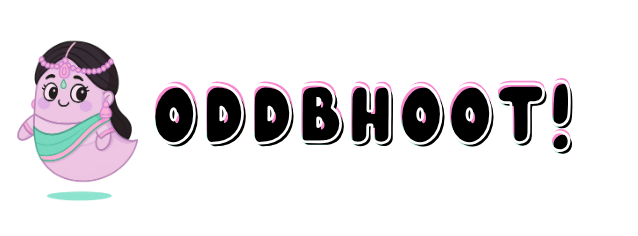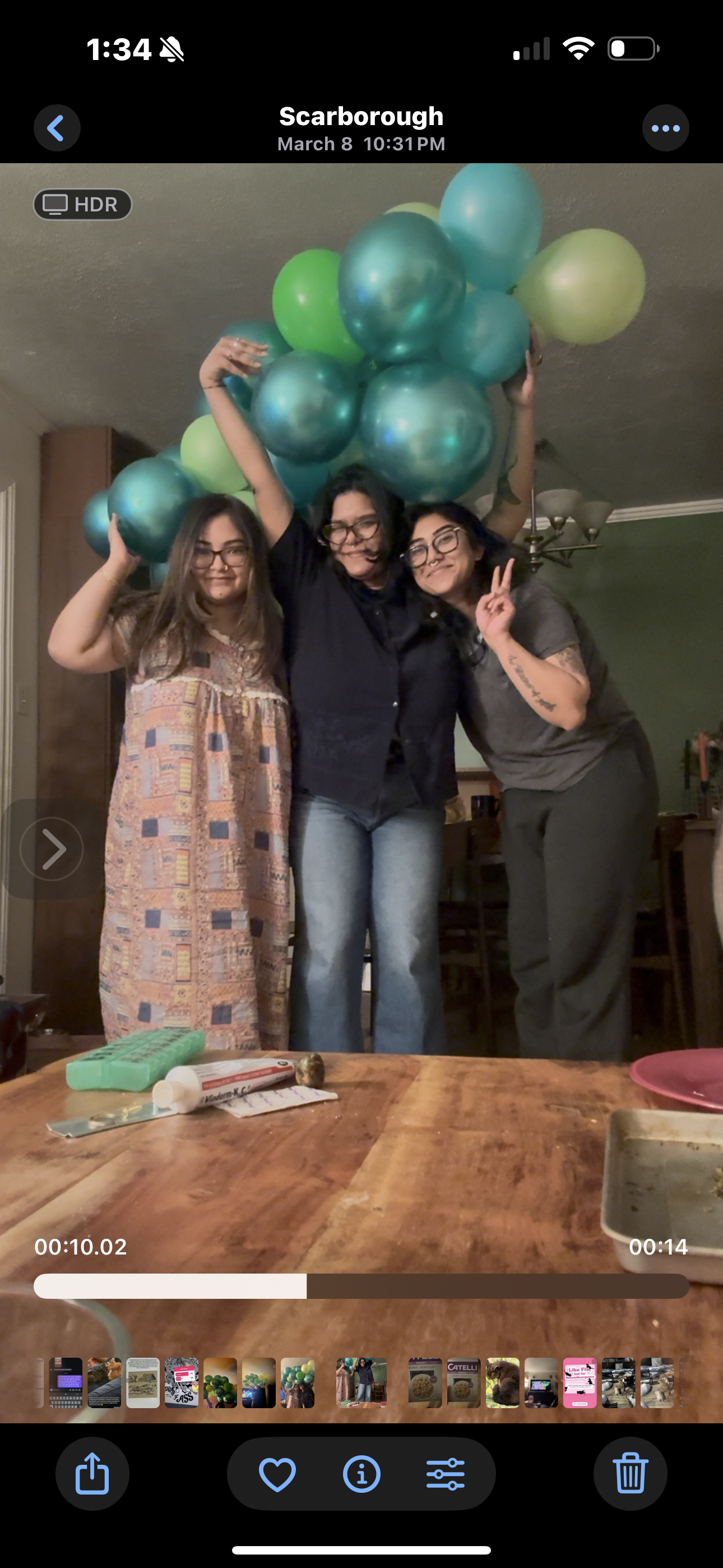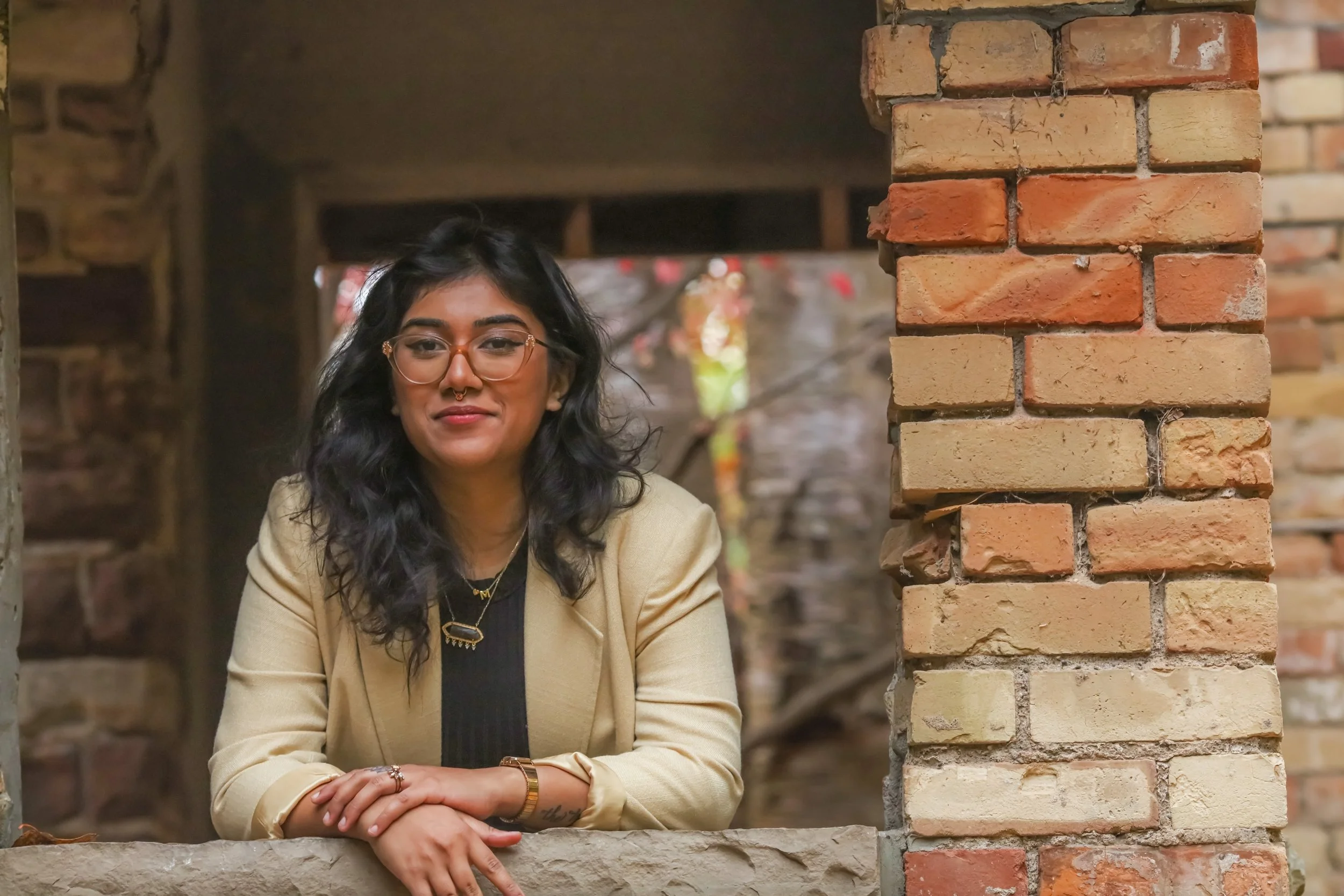Hi! We’re a collective of Bangladeshi women in Toronto, ON, and we’re all riddled with ADHD and/or autism and/or c-PTSD*, and we’re passionate about disability justice for women of colour for personal vendetta reasons.
We’re the daughters of survivors of the Bengali genocide. Add a legacy of British colonialism into the mix, coupled with a few famines and natural disasters here and there … I think we’re inclined to take the complex trauma lens to our experience.
Also, we used to call ourselves “Neurokin”, a popular word for communities of neurodivergent people, until we recently decided that, actually, there is a difference between all of us weirdos; Neurokin is not a monolithic catch-all phrase that can guarantee an inclusive and safe space or experience for people who look like us and share our lived experience of inequitable care - and South Asian women deserve their own space to yell about that, because it’s super unfair. So we decided to call ourselves OddBhoot. Welcome to our crib!
Image by Rashid Talukder
* Jury’s out on what we wanna call it at this point, but professionals have misdiagnosed & medicated us for soooo many things, who can say!!!
There’s a lot about how South Asian people deal with mental health that we wanna help to destigmatize - we had to dig ourselves up out of so much shame to even embark on this quest. It was hard, and it was lonely, until we found each other.
Creating the safety, and trusting each other enough to open up and be honest about our struggles? Tough. What was worse was telling our family and friends, only to be met with “Well, everyone experiences that. That’s just tension/stress.” Initially, it felt gutting, but eventually we realized - our closest people often had no language to express their own neurodivergent experiences, or had suppressed their own feelings, opting to assume everyone must have the same struggles, diminishing their own need for support in the process. This is typical behaviour for the archetypal Bengali mom. We want better.
Historically, women and people of colour have routinely been excluded from medical & psychological research, which has led to a lack of understanding of neurodivergent traits in marginalized folks. Having critical conversations about our culture’s perceptions of neurodivergence was crucial to us finding each other, and we know we’re not the only ones. To uplift those who need care most, we have to find them - and to do this, we know we have to embody the strength it takes to be loud and proud about our stories, to un-shame ourselves so that future generations don’t have to carry that stigma forward. Effectively unshaming ourselves from unknowingly living in a world that wasn’t built for us means providing the space and language necessary to understand ourselves and our families, while working to encourage awareness and resourcing.
We’re committed to the well-being of people who don’t fit the ADHD/autism archetype; those who have had to be resilient and persist to the point of burnout - those who, under constant threat of extinction in oppressive structures and systems, survive nonetheless. We believe that distributing free & accessible mental health knowledge will put people like us on the path towards self-discovery and self-empowerment, and allow them to live more authentically in their own skin, awake in their own lives.
Meet the team
Meet the team
Maria Khandaker
Co-founder | CEO | Chief Technical OfficerThose who knew me when I was a child say I was talkative, nerdy, bright, curious, and fascinated by culture and how it shapes the human mind. I'm still that kid - a jack of all trades and a compulsive dabbler, my truest passion has always been understanding people. A creature of logic, I pursued a degree in Mental Health Studies, at University of Toronto Scarborough. Here, through copious research and a lot of tears, I realized I had ADHD while writing an essay on gifted burnouts (which, I discovered, were just undiagnosed people of colour).
This knowledge, and the heightened state of emotion I felt while gathering data and thus holding other people’s pain, burned me out completely. I never handed that paper in, opting to avoid my professor’s emails and ultimately fail the class. It was really cute and ADHD of me! I switched careers out of shame and a lack of persistence (also very ADHD of me), choosing to try my analytical brain’s hand (?) at software engineering. Highly analytical, brilliant people of colour shared desk space with me, and suffered with very similar symptoms, but we all hid how bad it was from one another, choosing instead to just say we were “still working on that pesky bug fix”, for days at a time. When I did a presentation about ADHD at work, though, coworkers reached out to me for resources that they hadn’t been able to find through their own family doctors. This situation was absurd, but I couldn’t look away. I dove into the research, and tried to figure out why and how so many of us fell through the cracks of psychometric diagnostics. Looking at the compounding effects of neurodiversity & intergenerational trauma ultimately lead me to the realization that I was autistic, and had a healthy dash of c-PTSD sprinkled on top. My autism burnout journey has been overall less tough on me than my ADHD one, thanks in large part to Au-DHD women content creators - but I never saw any brown women in these spaces. Mental healthcare often feels like a luxury and not a basic need for brown women, especially for those of us who have learned to be selfless and ashamed to share with people outside of our families. As if we don’t deserve to know ourselves or live for ourselves in equal measure.
I decided to develop OddBhoot with my cousin Shupa, who you’ll meet very shortly. We found community in each other, and we believe that community-building can save us all. This will be the community I needed when I was an undiagnosed autistic brown kid/young adult. I really hope it helps you return home to yourself.
Shupa Rahman
Co-founder | Chief of Operations | Chief of DataHi! I am Shupa, your emotional support cousin.
I have over 6 years of interdisciplinary research experience, and a strong publication record in peer-reviewed scientific journals. My educational background in sustainability management with a focus in food security made me initially curious about health equity in marginalized communities. Since then, I’ve become a passionate advocate for efforts to reduce health inequity in BIPOC communities through decolonizing health research and destigmatizing conversations around mental health within these communities, especially for women.
This topic is a personal one for me. While struggling to complete my Masters, I remember going to various mental health facilities across Ontario and explaining to each person that I was feeling “stuck”, only to be prescribed anti-depressants. I kept maintaining that I was not depressed, only distressed because of my situation, but I did not have the language to articulate the complexities of what I was experiencing. As an international student in her mid-20s, pursuing a higher education in a foreign country with little support, I had no understanding that I might be neurodivergent - it turns out I was - and I had never seen any research that could support the later finding that I have autism. I forgive myself for not knowing this, but I’m disappointed that my clinicians were as clueless as me.
I am using my research, mentorship skills and experience to make life more livable for fellow women of colour who are trying to figure out how to thrive in a world that has not been built for them. I want to create a community and, ultimately, a world where neurodiverse women of colour can find:
the language to talk about their struggles
a safe space to understand the diverse cultural nuances that shape their experience
the strength and agency to advocate for themselves.
Through my work, I hope to remove the stigma and shame associated with autism and the topic of mental health in our communities.
Thanks for sticking with us!
Madhurja Bakshi
Chief Product OfficerHi! I’m Madhurja, lover and curator of vibes.
As a visionary with a strong sense of curiosity, I’m intrigued by what can be created out of the unknown, often seeing problems as scattered pieces of a puzzle waiting to be solved. This draws my attention to gaps in our healthcare system and inspires me to imagine what would be needed to bridge them. With a BSc in Public Health and Psychology and nearly three years of experience across various health promotion projects, I find myself asking: What’s been done already, and how can we make it better? My journey navigating an ADHD diagnosis in the face of systemic barriers made me deeply attuned to the ways our systems are designed and how they impact health access and patient outcomes. I’m committed to sharing what I’ve learned along the way and creating tools that are approachable and inclusive, especially for those who see themselves in my story.
The initial wave of validation subsided shortly after I received my ADHD diagnosis, and I was left questioning who I had become, weary from years of overfunctioning and burnout. I felt enveloped by an identity built for survival, prioritizing self-restraint as a means of protection. In deconstructing the ‘obedient Bengali girl’ role I’d fallen into, I saw a bubbly, unapologetic and expressive version of myself emerge. To be at ease in my authenticity became unfamiliar yet nourishing, and I noticed that with the right people and in the right spaces, I was celebrated for it. Although my passion had once been mistaken for being ‘too much’, and my self-determination for being difficult, I’ve come to understand this is what made me resilient.
In navigating new spaces independently, it occurred to me that the old patterns conditioned to keep me small were no longer serving me. After countless encounters with dismissive mental health professionals and through finding solace in communities rooted in lived experience, I witnessed firsthand the disconnect between health systems and the people they’re meant to serve. Social determinants of health became more than theory - I saw it unfold in heartfelt conversations with friends, in every doctor’s visit and in opportunities I had to finally speak at professional conferences. These experiences deepened my understanding of how care must be reimagined—not just improved, but restructured with the people it’s meant to support at the center. I see immense value in creating person-centred tools that reflect the real needs of those they serve, making services more equitable, intuitive, and grounded in lived experience.
Subhana Akhter
Maker-in-Residence
[BIO COMING SOON]









